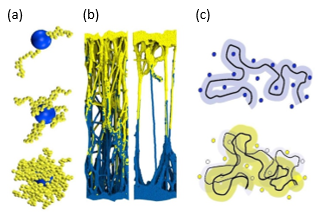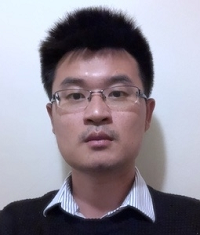New Faculty Member: Dr. Ting Ge
Assistant Professor
Department of Chemistry and Biochemistry
University of South Carolina
Computational and Theoretical Polymer Physics
Dr. Ting Ge is a new assistant professor of Chemistry and Biochemistry in the Chemistry and Biochemistry Department at UofSC. He received his Ph.D. in 2013 from the Department of Physics and Astronomy at Johns Hopkins University (JHU). His doctoral research focused on entanglements in large deformation and mechanical failure of glassy polymers. After graduation, Dr. Ting joined the Chemistry Department at the University of North Carolina at Chapel Hill then the Department of Mechanical Engineering and Materials Science at Duke University as a postdoctoral fellow to conduct theoretical and computational research in polymer physics.
Dr. Ting Ge is establishing a group that conducts computational and theoretical research on soft matter, in particular polymers. One focus of Ge group is polymer nanocomposites that blend nanoparticles and polymers for enhanced properties with respect to pure polymeric materials. The goal is to systematically examine the effects of various molecular aspects on the dynamics and mechanics of polymer nanocomposites using molecular simulations and microscopic theories. The computational and theoretical work will be integrated into the experimental studies, both chemical synthesis and material characterization, at U of SC.In general, Ge group is interested in polymer mechanics and polymer rheology. Mechanical integrity is the foundation of the performance of any polymeric materials. Ge group aims to design a multi-scale framework to model the large deformation and fracture of polymers across multiple length and time scales. The modeling work will be evaluated experimentally and applied to guide the design of new polymeric materials with superior mechanical properties. Rheology is the branch of science that studies the flow of matter. Ge group performs computer simulations and develop theories to understand the rheology of polymers on the microscopic level. The research outcome will be combined with the synthetic ingenuity and experimental precision offered by peer researchers for a further development of polymer rheology.

(a) Simulation snapshots of polymer-tethered nanoparticles.
(b) Simulation snapshots of fracture at polymer interfaces.
(c) Vignettes of the theoretical description of cyclic polymer dynamics.
May 2020